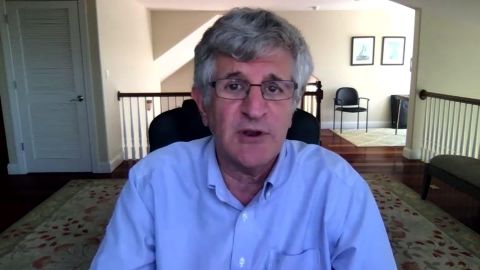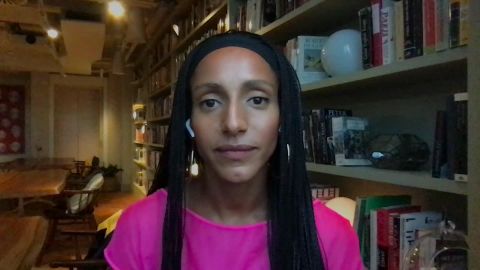Read Transcript EXPAND
AFUA HIRSCH, AUTHOR, “BRIT(ISH)”: You’re right, I couldn’t have known the exact content when I started working on it two years ago, is that there are — on the African continent, a whole generation, actually, generations of intellectuals, artists and creatives who were addressing the problems that we’re facing today. They were addressing the question of what it meant for black people around the world if the African continent wasn’t thriving. And they tried to create a sense of unity and a road map and a plan for black people everywhere to have control of their own destiny, which related to Africa. And I really wanted to revisit these African countries and find out what they had to tell us, because I think so often, we don’t connect with the liberation struggles against colonialism of the early 20th century and there’s so much resonance with today. Ethiopia in particular is a country I looked at last week, and you can view all of these on iPair (ph) online, as a country that never had European colonization in the same way as the rest of the African continent. And as a result, there is a cultural confidence in having their own particular type of religion, their own alphabet, even their own system of time and date that has never been influenced by Western Eurocentric norms. And I think that there is so much that we as black people in the diaspora, as everyone who cares about racial justice, can take from the ideas and the innovation that has happened on the African continent. And I really wanted to show that in all of its richness and glory.
CHRISTIANE AMANPOUR: Well, Ethiopia is the first one, and it’s really interesting, because you start, practically, in London where you grew up, Wimbledon outside of the capital, and you as a child, as a young person there, noticed that there were statues and busts, or at least one, of the Haile Selassie. And tell me what it was doing there and how that, you know, sort of motivated your interest.
HIRSCH: Well, it’s a really fascinating story, that when Haile Selassie was deposed from his reign in Ethiopia by an Italian invasion, he sought refuge with an Italian count who had this stately home in Wimbledon where I grew up. And the only thing that remains of that history now is this bust, which actually sadly has been destroyed since I made this program by vandals. And that’s a whole other story. But growing up for me in a place that was very white and regarded as essentially English, here was just a little clue to the fact that the histories of African countries and the history of Britain are so intertwined. And I think the way history has been rewritten by colonial powers has tended to downgrade stories of Africa as if they are a kind of niche issue over there, when, in actual fact, they are foundational to our understanding of culture, race, all the issues in our society that we’re constantly questioning. Half of their origins in the African continent and the same is true of the U.S. And I think until we start to engage in that history and that culture in its true form, we’re really missing a dimension in our own analysis of what’s happening in contemporary societies right now.
About This Episode EXPAND
Christiane speaks with Scott Jennings about what another four years of President Trump would bring. She also speaks with Dr. Paul Offit about convalescent plasma therapy and with Afua Hirsch about the consequences of Britain denying its imperial past. Michel Martin speaks with Beth Fukumoto about the racism that led to her resignation from the Republican Party.
LEARN MORE



